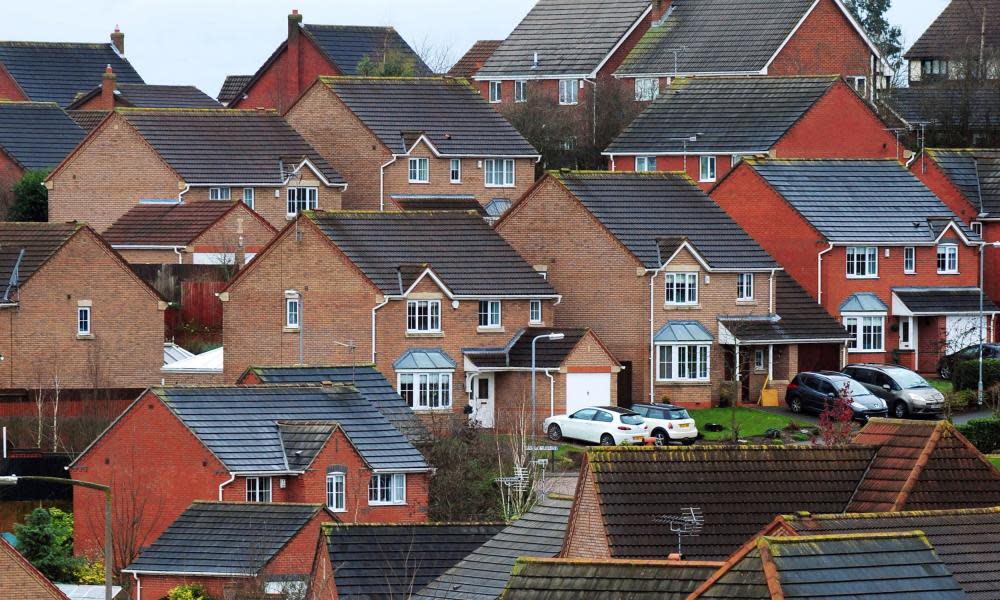UK property demand declines as house prices in England fall

Property sales and house prices continued to decline across the UK in January, while new buyer demand and fresh listings were also down, surveyors have reported.
A net balance of -47% for new buyer inquiries was reported, down from -40% in December, according to the latest monthly snapshot from the Royal Institution of Chartered Surveyors (Rics). It was the weakest monthly reading since April 2009 and the ninth successive negative monthly reading for new buyer inquiries.
Rics said all the indicators point to a further slowdown in the housing market in the coming months, as borrowing costs have risen sharply and household incomes are squeezed by the cost of living crisis. The Bank of England raised interest rates for the 10th time last week to 4%, but said inflation is “likely to have peaked”, and a recession would be less severe than previously feared.
The Rics survey measures the difference between the number of estate agents and property surveyors reporting increases and those experiencing decreases in different areas of the property market.
The volume of fresh listings coming on to the market was also down, according to the survey, with a net balance of -14% respondents reporting a decline in new instructions during January.
Meanwhile, the latest feedback on national house prices points to another monthly decline, as the net balance weakened further to -47% compared with a reading of -42% in December.
All regions of England are seeing house prices retreat at present, with the sharpest drops reported across the east Midlands and the south-east.
Charlie Barrett of DM Hall Chartered Surveyors in Edinburgh told the survey: “December and January were typically slow. The general rhetoric from potential sellers is ‘wait and see’. A steady increase in market activity in Edinburgh and the Lothians is anticipated through the spring into the summer. Interest rates and cost of living are undoubtedly having an impact.”
But despite the broadly gloomy feedback, there does appear to be some more positive noises coming from the sector about the coming year. While remaining in negative territory, the sales outlook for the next 12 months has halved to -20% from -42% in December.
Simon Rubinsohn, the chief economist at Rics, said: “Although some respondents have noted a little more interest in the housing market as the new year got under way, the overall tone of the feedback still remains subdued which is not altogether surprising given the jump in mortgage rates since the autumn.
“Prices, meanwhile, are now beginning to reflect the shift in balance between demand and supply. However, it is questionable how much downside to pricing there is likely to be given that recent macro forecasts from the Bank of England and others are now envisaging a less harsh economic environment this year.”
He added: “Meanwhile the rental market continues to show strong interest from tenants and limited stock available which is keeping a firm momentum to rental growth.”
The report showed that demand for rental homes has gone up further while fewer landlords listed their properties. Tenant demand rose according to a net balance of +43% of respondents, and a balance of +14% reported that landlord instructions fell.
Britain’s biggest housebuilder, Barratt, reported that reservations for homes almost halved in January compared with a year ago. Its chief executive, David Thomas, said“the economic backdrop has clearly been challenging and consumer confidence weakened significantly” during the second half of 2022.
He saw some grounds for optimism as the reservations rate in January improved compared with the prior six months – but cautioned that the outlook for 2023 remained “uncertain”. “While we have seen some early signs of improvement in current trading during January, we will need to see continued momentum over the coming months before we can be confident that these challenging trading conditions are easing.”

 Yahoo Movies
Yahoo Movies 
